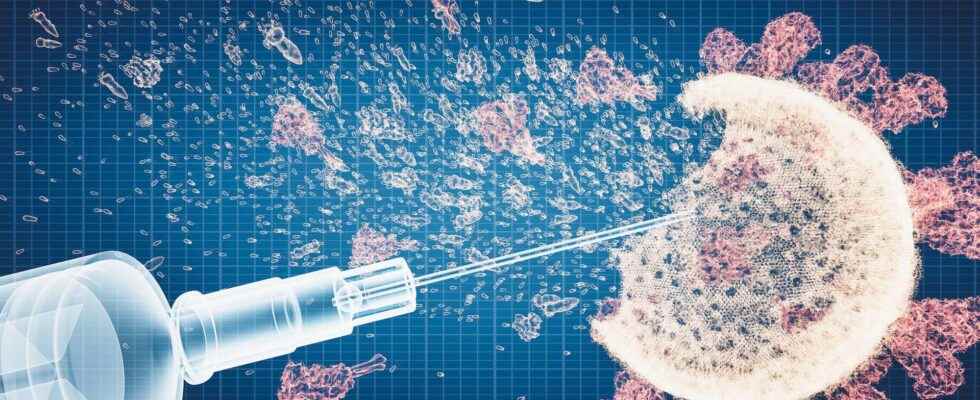In recent days, the booster dose of anti-Covid-19 mRNA vaccines has been open to everyone. In what proportion does this booster reduce the risk of being infected with SARS-CoV-2 and being hospitalized?
You will also be interested
[EN VIDÉO] Why are we more afraid of vaccines than of drugs? Nearly one in four French people refuse to be vaccinated. Most people, however, are not reluctant to swallow medication. Where does this difference come from ?
Since November 27, 2021, all adults over 18 years of age can receive an additional dose of Covid-19 vaccine, 5 months after the previous one. This dose, necessarily of an mRNA vaccine, reactivates antibodies and other effectors of immunity which gradually decline over time. But how much does she protect infections and hospitalizations? A study published in Jama Internal Medicine provides an answer to this question, drawn from data collected in Israel. There, the vaccine booster against Covid-19 has been recommended since August 24, 2021.
The 3e dose reduces the risk of infection …
Scientists used data from members of the Maccabi Healthcare Services, or 306,710 people over 40 years old. Among them, some have a classic vaccination schedule: two doses of the vaccine Pfizer ; and others received a booster dose, also of Pfizer vaccine. For 65 days, scientists tracked the occurrence of PCR tests positive in both groups. In the “two doses” group, 227,380 were performed, 6.6% of which came back positive. In the “third dose” group, 272,852 tests were performed and 1.8% of them came back positive.
Compared with the “two-dose” group, people who received the booster have an 86% lower risk of testing positive for SARS-CoV-2 (odd ratio 0.14). The protection conferred by the booster dose gradually increases over time, as was observed for the first injections. Within 6 days of the booster dose, the risk of testing positive is comparable to that of people who have not received it. It is 14 days after injection that the booster dose reaches its maximum effectiveness, and it lasts for up to 65 days post-infection. The study did not follow the patients beyond.
… and the risk of hospitalization
The scientists then estimated the benefits of the booster dose on hospitalizations. After 14 days, the risk of being hospitalized for people who received the booster dose is 92 to 94% lower compared to those who did not. This study has limitations. It does not provide information on the effects of the booster dose on the severity of the disease and does not make it possible to estimate the duration during which this booster retains its effectiveness. But it shows that it does indeed restore a certain effectiveness which makes it possible to limit infections and hospitalizations.
Interested in what you just read?
.
fs6
